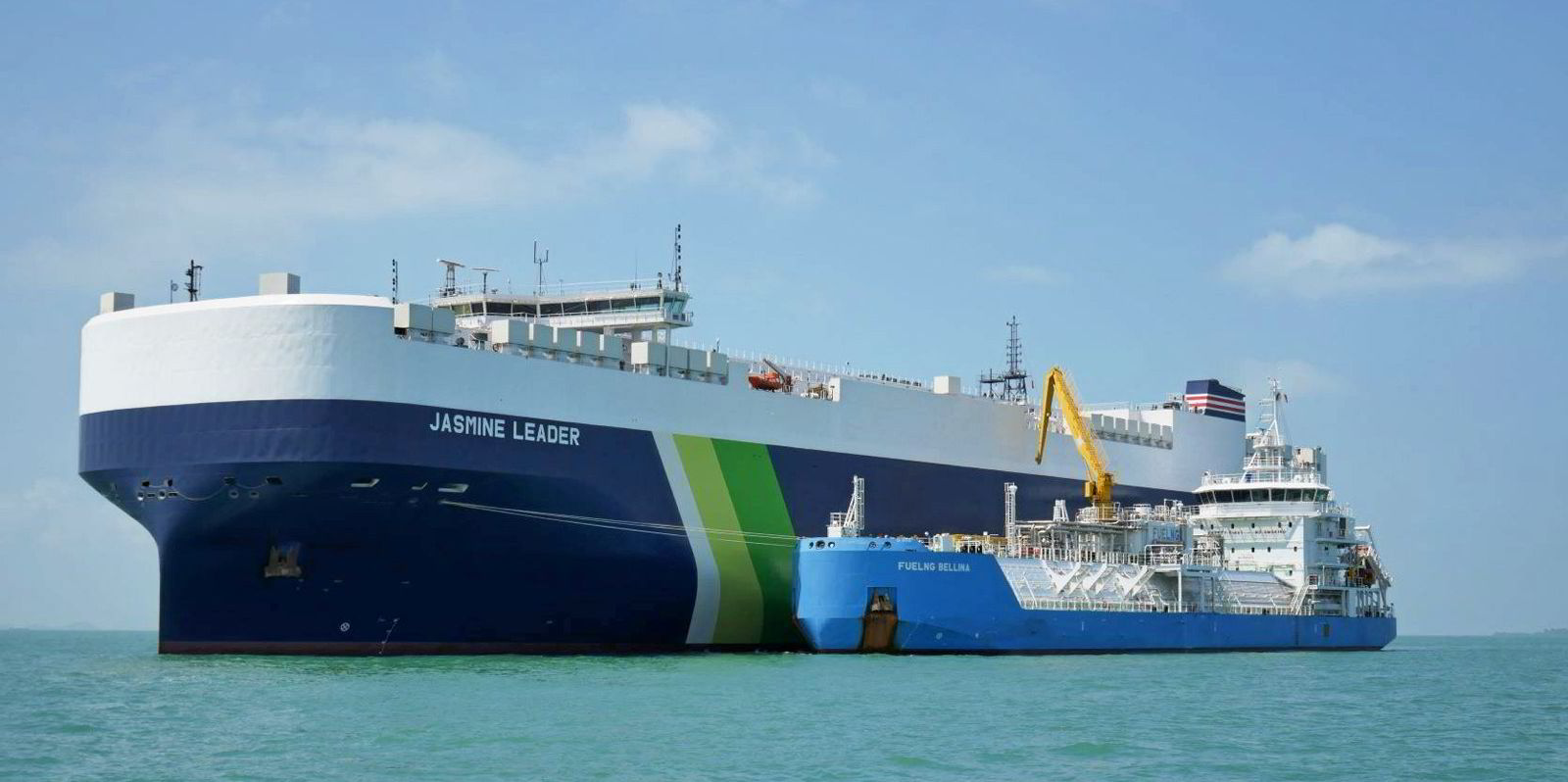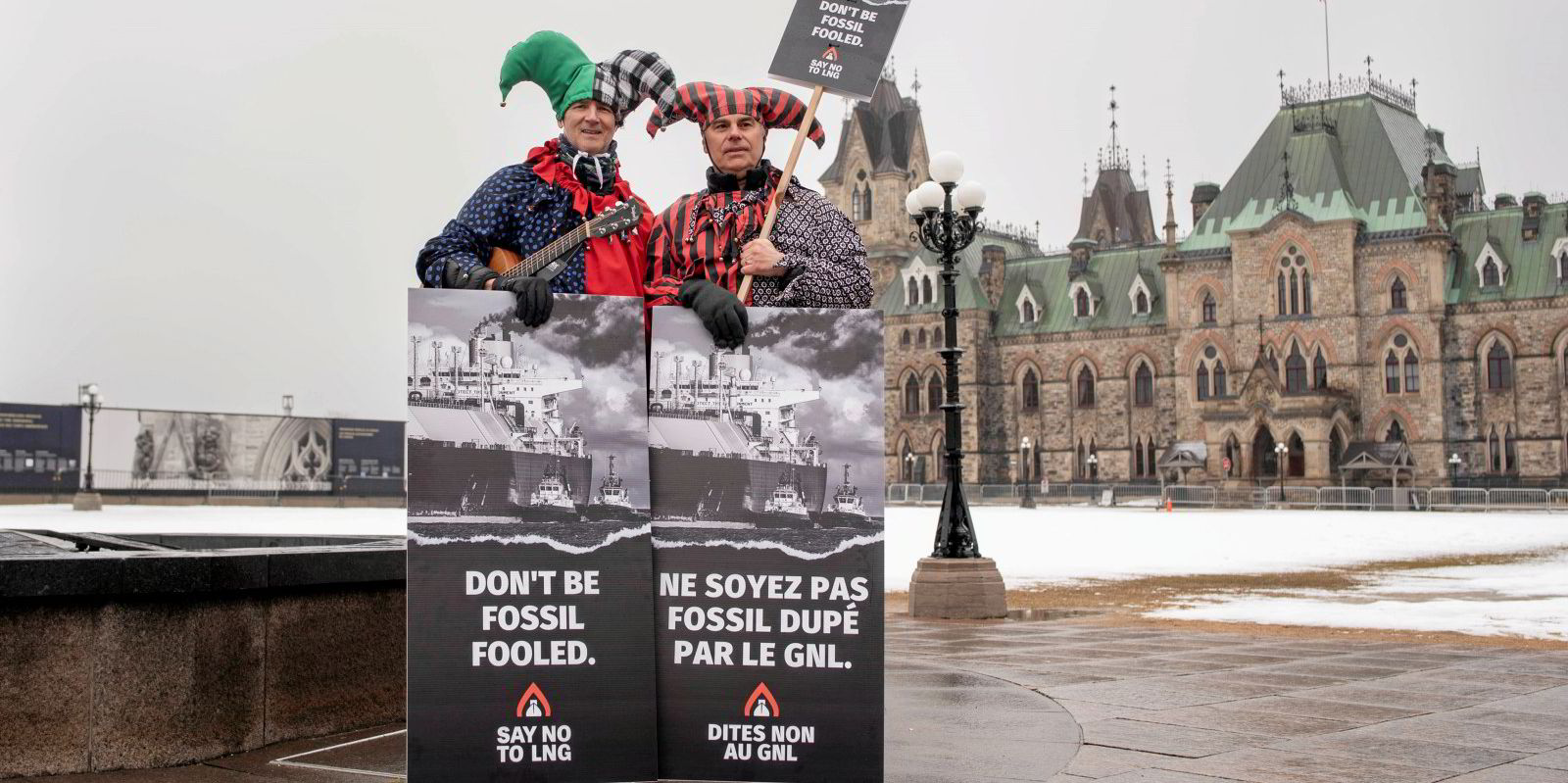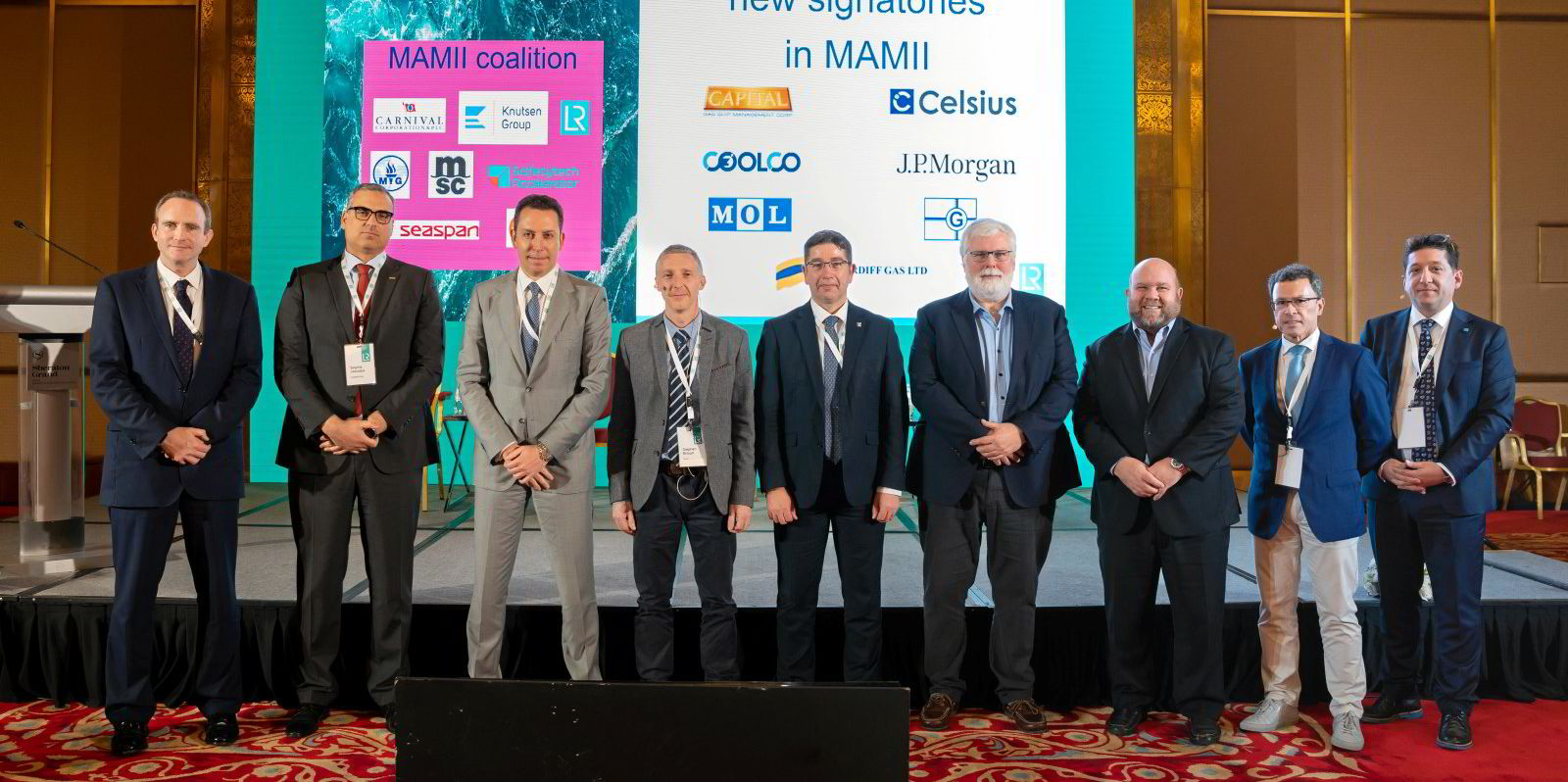Industry coalition SEA-LNG has lashed out at new campaign group Say No to LNG, declaring it has “no place in a responsible dialogue” just two weeks after new grouping launched.
The lobby group argued that the anti-LNG campaign is basing its campaign on a “false contention” that the LNG industry is attempting to hide the issue of its methane emissions.
The industry group said in reality the sector has recognised that it is an issue that needs to be addressed urgently, citing its peer-reviewed greenhouse gas emissions analysis which is based on data from marine engine manufacturers.
“Levels of methane slip have been reduced by a factor of four since LNG-fuelled engines were introduced in the early 2000s and, today, the LNG-fuelled vessel orderbook is dominated by engine technologies with low, or negligible levels of methane slip,” SEA-LNG said.
The lobby group also highlighted the Methane Abatement in Maritime Innovation Initiative, which a raft of shipowners have signed up to, that aims to monitor, measure and abate methane emissions in the maritime supply chain.
The coalition accused Say No to LNG of seeking to misrepresent what it described as “the clear benefits of the LNG pathway to decarbonisation and overstate its challenges”.
Instead SEA-LNG said fuels must be evaluated on a like-for-like scientific basis so the industry can make properly informed decisions. It described LNG as a “step in the right direction” in that it cuts greenhouse gas emissions by up to 23% on a well-to-wake basis, eliminates SOx and NOx, while offering a pathway to further decarbonisation via bio-LNG and synthetic LNG.
Following its 1 April launch, Say No to LNG global campaign director Elissama Menezes told TradeWinds the body believes LNG is being contextualised as a “transition or green fuel” and part of the decarbonisation strategy but believes this “an incomplete narrative” as it ignores the more harmful effects of methane emissions.
Instead of investing in LNG-fuelled vessels, the global network of environmental and climate advocates wants shipowners to employ operational measures to save fuel and to invest in research and development.
“[Say No to LNG] brings no new evidence to the table, simply rehashing existing flawed analysis, based on old technologies and unrealistic assumptions, cherry-picking data and stating facts out of context,” SEA-LNG said.
“Organisations that have as their stated negative goal — ‘to urge policymakers, industry stakeholders, and financial institutions to urgently rule LNG out of any shipping decarbonisation scenario’ — while offering no viable alternatives have no place in a responsible dialogue.”
“Rather than disparaging the considerable efforts that first-movers have made in initiating the first transformation in maritime propulsion since the move from coal to oil, perhaps they [Say No to LNG] could reflect on how they could constructively work with the industry to address the numerous common challenges the introduction of these new fuels face,” SEA-LNG added.






